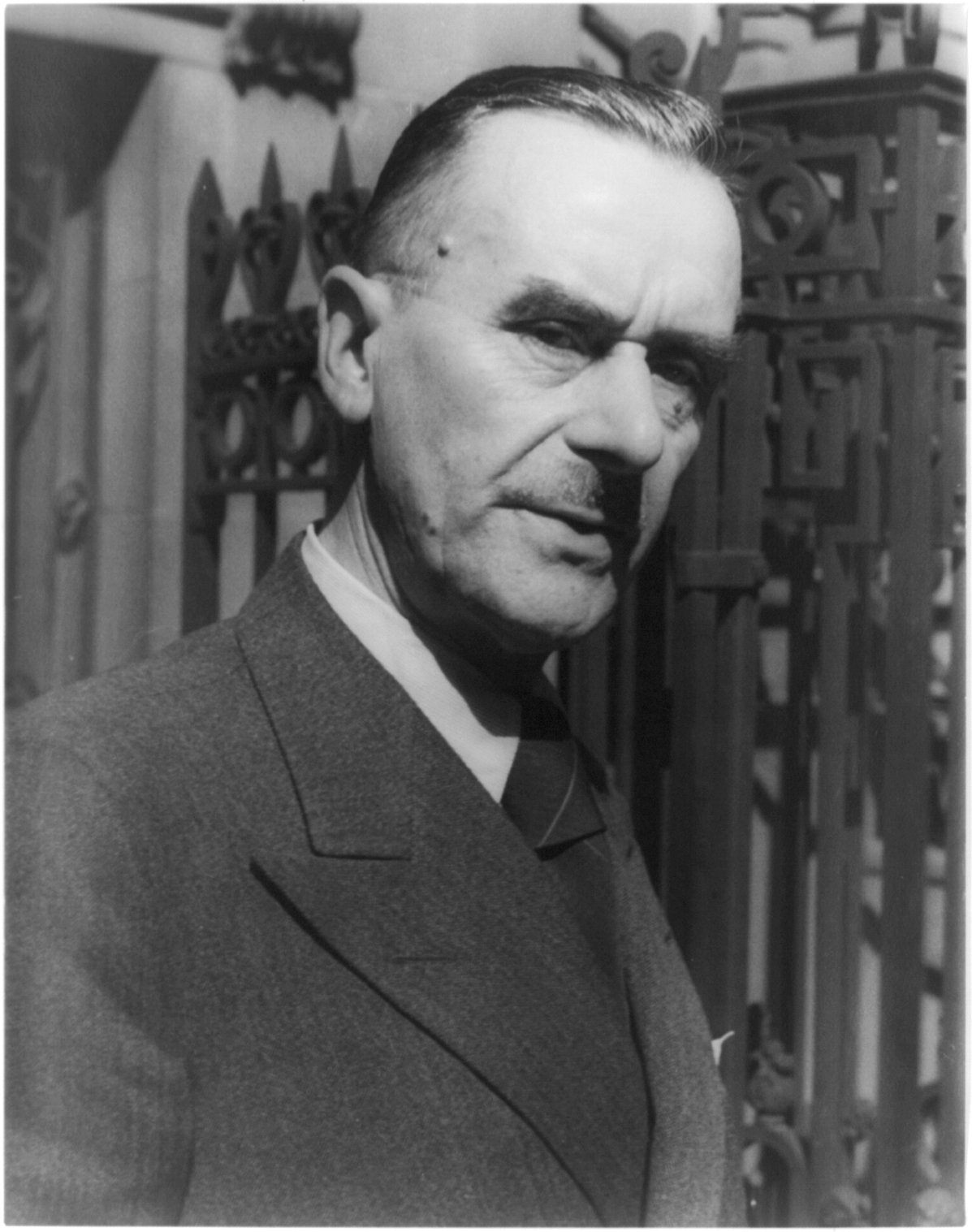„Ten, kto miluje viac, je podriadený a musí trpieť.“
Prisudzované výroky
Varianta: Ten kto miluje viac, je podriadený a musí trpieť.
Paul Thomas Mann bol nemecký spisovateľ, filantrop a esejista prvej polovice 20. storočia. V roku 1929 získal Nobelovu cenu za literatúru.

„Ten, kto miluje viac, je podriadený a musí trpieť.“
Prisudzované výroky
Varianta: Ten kto miluje viac, je podriadený a musí trpieť.
„Spisovateľ je človek, pre ktorého je písanie zložitejšie ako pre iných ľudí.“
Prisudzované výroky
Varianta: Spisovateľ je človek, pre ktorého je písanie ťažšie ako pre ostatných ľudí.
„Sklamanie je ako zmrznutá ruka: môže sa vyliečiť, ale vždy bolí.“
Prisudzované výroky
„Vojna je iba zbabelý útek od problémov v mieri.“
Prisudzované výroky
„Kto nepozná minulosť, nepochopí budúcnosť.“
Prisudzované výroky
Suffering and Greatness of Richard Wagner (1933)
L’amour pour lui, pour le corps humain, c’est de même un intérêt extrêmement humanitaire et une puissance plus éducative que toute la pédagogie du monde!
Zdroj: The Magic Mountain (1924), Ch. 5
Nobel Banquet Speech (10 December 1929) http://nobelprize.org/nobel_prizes/literature/laureates/1929/mann-speech.html
Zdroj: The Magic Mountain (1924), Ch. 2, “At Tienappels’,” (1924), trans. by H.T. Lowe-Porter (1928).
Freud and the Future (1937)
“Beauty can pierce one like pain.”
Buddenbrooks [Buddenbrooks: Verfall einer Familie, Roman], Pt 11, Ch. 2
Letter to the dean of the Philosophical Faculty, Bonn University (January 1937)
Responding to anti-semitic propaganda and to criticisms of German writers living in exile during the early years of the Nazi regime in Germany, as quoted in "Homage to Thomas Mann" in The New Republic (1 April 1936) http://www.newrepublic.com/article/114269/thomas-mann-stands-anti-semitism-stacks
Zdroj: Tonio Kröger (1903), Ch. 9, as translated by Bayard Quincy Morgan
Buddenbrooks [Buddenbrooks: Verfall einer Familie, Roman] (1901). Pt 8, Ch. 2
Suffering and Greatness of Richard Wagner (1933)
“The positive thing about the sceptic is that he considers everything possible!”
Attributed as a statement of Mann in the 1920s in Chariots of the Gods? : Unsolved Mysteries of the Past (1969) by Erich von Däniken, as translated by Michael Heron